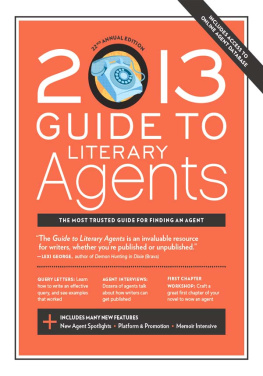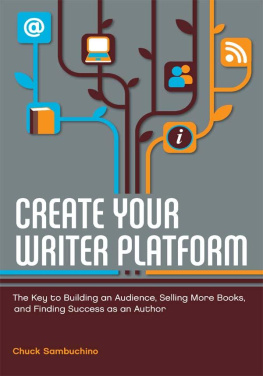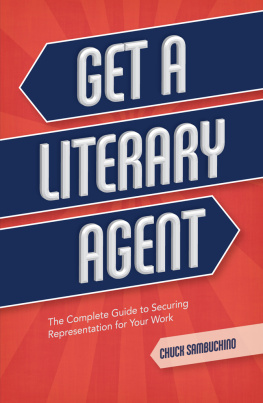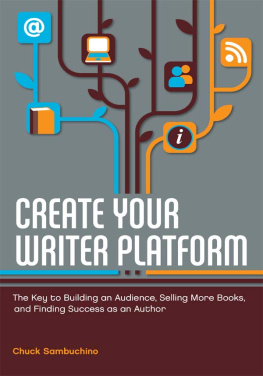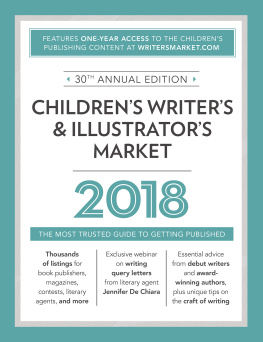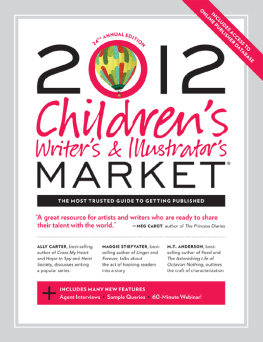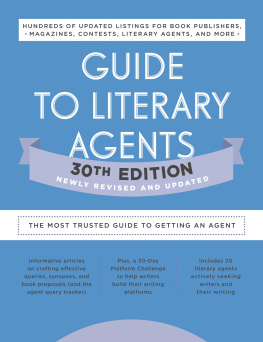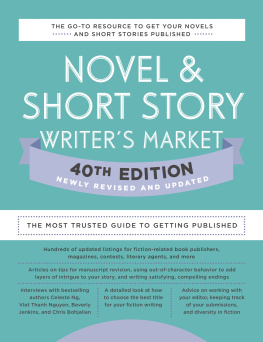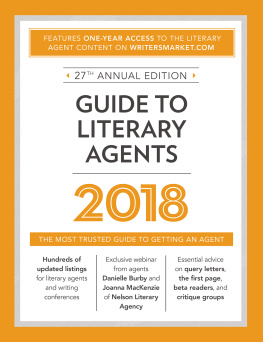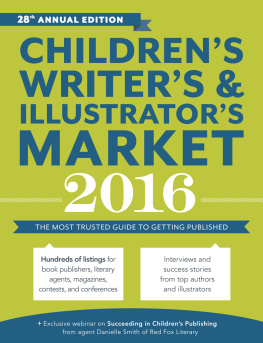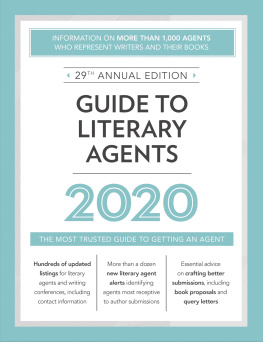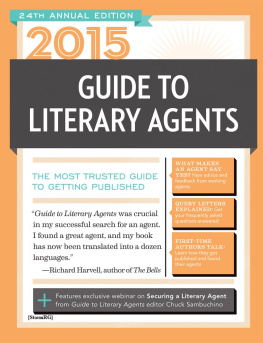FROM THE EDITOR

As writers, we often have certain hopes and goals for our books. We want them to be available in bookstores nationwide; we want them to have an opportunity to sell overseas and to Hollywood; we want a publishing house thats going to invest in our career. So whats the best way to get these things we envision?
The answer: Get a literary agent. A literary agent has access to the biggest publishing houses in the worldpublishers that can distribute and promote your work everywhere. So if you have high hopes for your book and youre looking for a literary agent, youve come to the right place. The 2013 Guide to Literary Agents is completely updated and ready for you to scan through so you can find your future rep.
And to make it a little easier for you, this year Ive taken the liberty of adding New Agent Spotlights all through the agency listings. These new/newer agents are actively looking to build their client list, and are great targets for writers seeking representation. Besides that, check out the books array of upfront articles on craft, queries, synopses, proposals, platform and much more. More than 30 agents chime in with advice in this guides pages.
Please stay in touch with me at guidetoliteraryagents.com/blog and on Twitter (@chucksambuchino). I love hearing feedback and success stories. Until we next meet, good luck on your writing journey!

Chuck Sambuchino
Editor, Guide to Literary Agents / Childrens Writers & Illustrators Market Author, How to Survive a Garden Gnome Attack (2010);
Red Dog / Blue Dog (2012); Create Your Writer Platform (2012)
HOW TO USE
GUIDE TO
LITERARY AGENTS
Searching for a literary agent can be overwhelming, whether youve just finished your first book or you have several publishing credits on your rsum. More than likely, youre eager to start pursuing agents and anxious to see your name on the spine of a book. But before you go directly to the listings of agencies in this book, take time to familiarize yourself with the way agents work and how you should approach them. By doing so, you will be more prepared for your search, and ultimately save yourself effort and unnecessary grief.
Read the articles
This book begins with feature articles that explain how to prepare for representation, offer strategies for contacting agents, and provide perspectives on the author/agent relationship. The articles are organized into three sections appropriate for each stage of the search process: Getting Started and Contacting Agents. You may want to start by reading through each article, and then refer back to relevant articles during each stage of your search.
Because there are many ways to make that initial contact with an agent, weve also provided a section called Perspectives. These personal accounts from agents and published authors offer information and inspiration for any writer hoping to find representation.
Decide what youre looking for
A literary agent will present your work directly to editors or producers. Its the agents job to get her clients work published or sold, and to negotiate a fair contract. In the Literary Agents section, we list each agents contact information and explain what type of work the agency represents as well as how to submit your work for consideration.
FREQUENTLY ASKED QUESTIONS
- WHY DO YOU INCLUDE AGENTS WHO ARE NOT SEEKING NEW CLIENTS? Some agents ask that their listings indicate they are currently closed to new clients. We include them so writers know the agents exist and know not to contact them at this time.
- WHY DO YOU EXCLUDE FEE-CHARGING AGENTS? We have received a number of complaints in the past regarding fees, and therefore have chosen to list only those agents who do not charge reading fees.
- WHY ARE SOME AGENTS NOT LISTED? Some agents may not have responded to our requests for information. We have taken others out of the book after receiving serious complaints about them.
- DO I NEED MORE THAN ONE AGENT IF I WRITE IN DIFFERENT GENRES? It depends. If you have written in one genre and want to switch to a new style of writing, ask your agent if she is willing to represent you in your new endeavor. Most agents will continue to represent clients no matter what genre they choose to write. Occasionally, an agent may feel she has no knowledge of a certain genre and will recommend an appropriate agent to her client. Regardless, you should always talk to your agent about any potential career move.
- WHY DONT YOU LIST MORE FOREIGN AGENTS? Most American agents have relationships with foreign co-agents in other countries. It is more common for an American agent to work with a co-agent to sell a clients book abroad than for a writer to work directly with a foreign agent. We do list agents in the United Kingdom, Australia, Canada and other countries who sell to publishers both internationally and in the United States. If you decide to query a foreign agent, make sure they represent American writers (if youre American). Some may request to only receive submissions from Canadians, for example, or UK residents.
- DO AGENTS EVER CONTACT A SELF-PUBLISHED WRITER? If a self-published author attracts the attention of the media or if his book sells extremely well, an agent might approach the author in hopes of representing him.
- WHY WONT THE AGENT I QUERIED RETURN MY MATERIAL? An agent may not answer your query or return your manuscript for several reasons. Perhaps you did not include a self-addressed, stamped envelope (SASE). Many agents will discard a submission without a SASE. Or, the agent may have moved. To avoid using expired addresses, use the most current edition of Guide to Literary Agents or access the information online at WritersMarket.com. Another possibility is that the agent is swamped with submissions. An agent can be overwhelmed with queries, especially if the agent recently has spoken at a conference or has been featured in an article or book. Also, some agents specify in their listings that they never return materials of any kind.
For face-to-face contact, many writers prefer to meet agents at Conferences. By doing so, writers can assess an agents personality, attend workshops and have the chance to get more feedback on their work than they get by mailing submissions and waiting for a response. The conferences section lists conferences agents and/or editors attend. In many cases, private consultations are available, and agents attend with the hope of finding new clients to represent.
Utilize the extras
Aside from the articles and listings, this book offers a section of Resources. If you come across a term with which you arent familiar, check out the Resources section for a quick explanation. Also, note the gray tabs along the edge of each page. The tabs block off each section so they are easier to flip to as you conduct your search.

